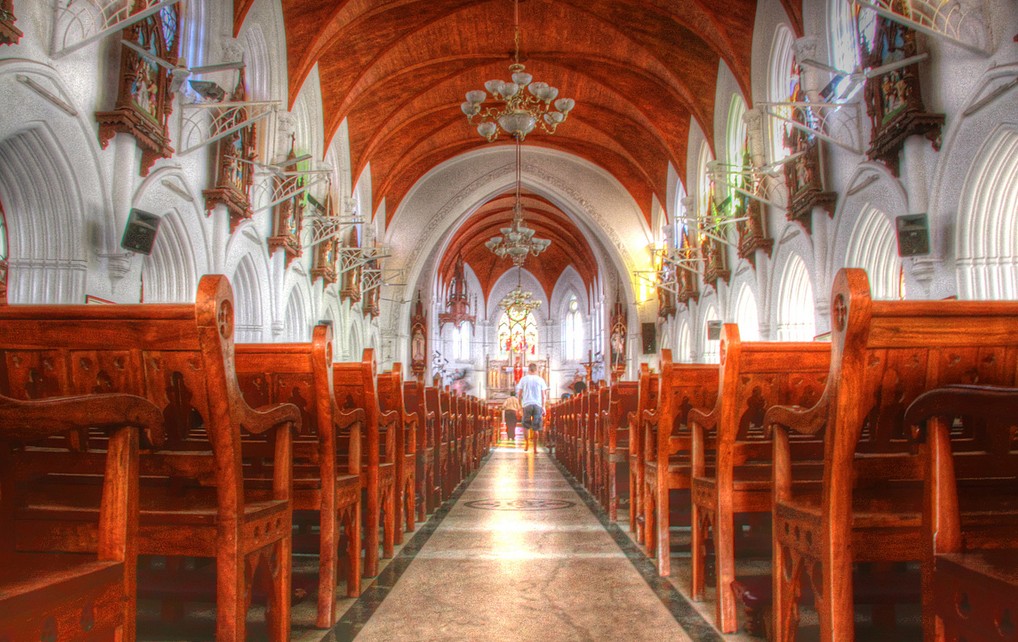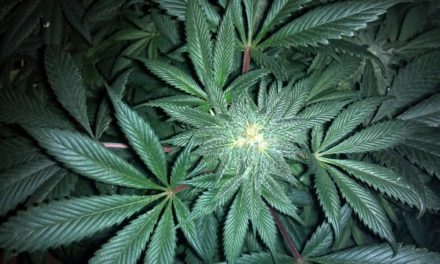
A new study from John Hopkins University about psychedelics and spirituality is requesting participation from clergy members. | Image Source: Flickr User vinothchandar
Many people who take psychedelics like ayahuasca, ibogaine, LSD, and psilocybin mushrooms report their experiences to be among the most profound and spiritually significant of their lives. Under the consciousness-expanding effects of entheogens, many describe deep revelations about the nature of the self, the cosmos, and the meaning of life. To those who haven’t tried psychedelics, these insights can be dismissed as drug-induced delusions that have no real value, but the correlation between psychedelics and spirituality is not a recent one, in fact, it is as ancient as humanity itself.
Cultures all over the globe and throughout time have used psychedelics as sacraments in their most holy rituals. From the soma drinking of ancient Vedic peoples to the modern-day psilocybin rituals of the syncretic Christian Mazatec culture in Mexico, peoples throughout the ages have used psychedelics to gain insights into their world. Similarly, religious devotees and master meditators describe their ecstatic brushes with the divine in terms very familiar to those who’ve experienced psychedelics, such as being filled with light or being at one with God and the universe. So what exactly is the relationship between religion, spirituality and psychedelics? To begin to answer that question, a new psilocybin research study by Johns Hopkins University aims to take a clinical approach that includes one very interesting angle — asking members of the religious clergy to take psilocybin mushrooms and report their experiences.
A Religious Take on the Psychedelic Journey
Headed by Johns Hopkins professor of psychiatry and behavioral sciences Dr. Ronald Griffiths, this study will seek out two dozen full-time clergy members of any organized religion to take psilocybin mushrooms in a “living-room-like” setting and describe the immediate and long-term effects of their psychedelic journey. Like many studies of this nature, before the imbibement of the mushrooms, candidates will undergo medical and psychological screening. During the session, they will be given eyeshades and music meant to enhance their experience while being supported by trained staff.
So why seek out clergy? Griffiths hopes to see if those formally devoted to spiritual discipline have the same high rate of mystical experiences as non-religious people who have been studied in the past. In 2006, Dr. Griffiths and others published a study titled “Psilocybin can occasion mystical-type experiences having substantial and sustained personal meaning and spiritual significance.”[1.”Psilocybin can occasion mystical-type experiences having substantial and sustained personal meaning and spiritual significance,” May 27, 2006, John Hopkins University, https://www.hopkinsmedicine.org/press_releases/2006/griffithspsilocybin.pdf.] This study was similar to the famous 1962 Marsh Chapel Experiment for its psilocybin research [2. “The God Chemical: Brain Chemistry And Mysticism,” NPR, May 18, 2009, https://www.npr.org/templates/story/story.php?storyId=104240746.] that was overseen by psychedelic advocate Timothy Leary while he was teaching at Harvard. Both studies arrived at the same basic conclusion — psilocybin can reliably produce a mystical experience in a significant percentage of those who take it under copacetic circumstances, and that experience leads to lasting positive changes in attitudes and behavior six months and even 25 years after the session.
With the hypothesis that psilocybin will have the same effect on these new clergy subjects, it’ll be fascinating to hear how the participants contextualize the experience based on their faith and how it might influence their faith-based work. While psilocybin is known for producing profound experiences of unity that often transcends religious designations, Griffiths is not trying to change anyone’s beliefs. As he says, “What I would most hope to see is that this kind of experience would resonate with the reasons they were initially drawn into the ministry and empower them to engage with their congregation in renewed and exciting ways.”[3.”Calling all mystics: Clergy psychedelic study aims to awaken spiritual experiences,” Religion News, October 22, 2915, https://www.religionnews.com/2015/10/22/calling-mystics-psychedelic-study-aims-induce-spiritual-experiences-clergy/.]
Help Make it a Reality
As one might guess, finding candidates for this study is a challenging task. Psychedelics have long been demonized in many faiths as something sinful; it’s not uncommon for the more religiously conservative to see psilocybin mushrooms as a dangerous drug. Of course, many of these beliefs are tied to old prejudices that have started to fall out of favor, and new research shows that psychedelics are both safe and highly beneficial when taken under the right circumstances.
If you or someone you know is a full-time clergy member of an organized religion, you can contact the facilitators of this study to see if you qualify. Psychedelics are powerful tools and can be intimidating to approach, especially for the first time, but there is no safer environment for an experience such as this than in the capable hands of Dr. Griffiths and his team. Sometimes the most lasting and beautiful experiences of our lives are just a leap of faith away.









